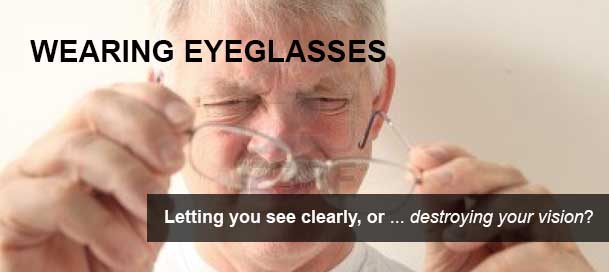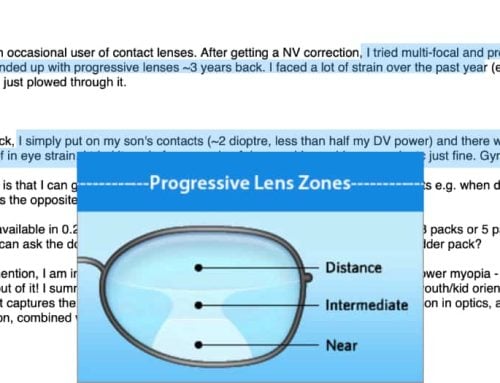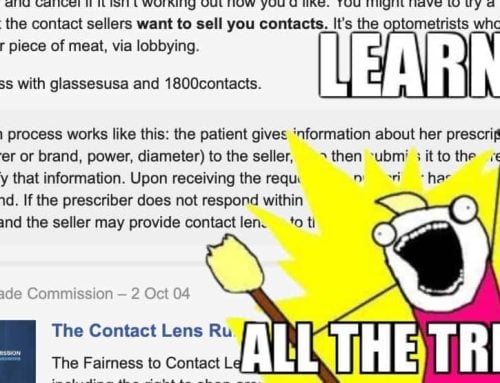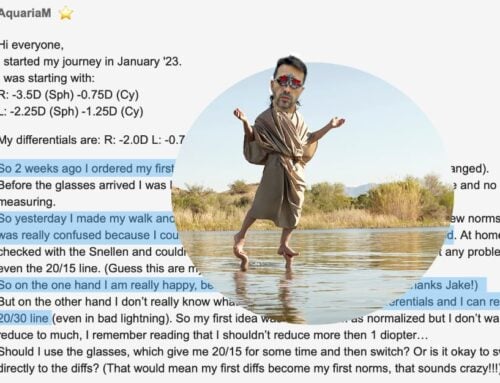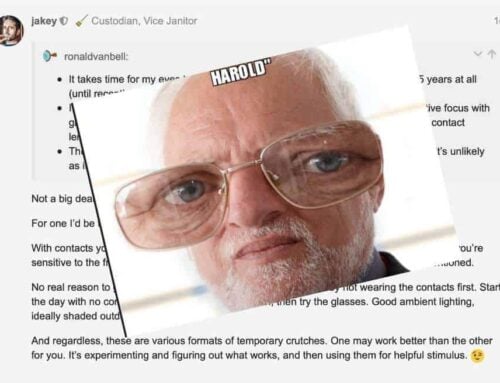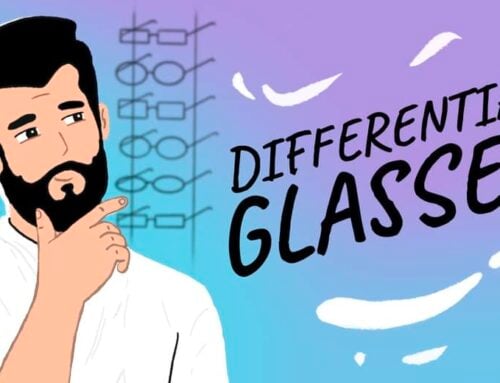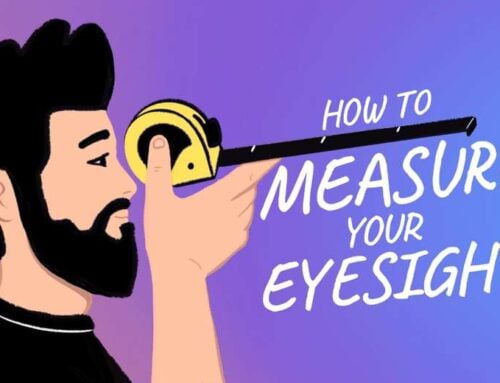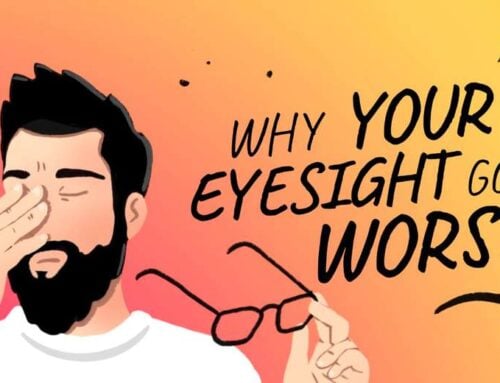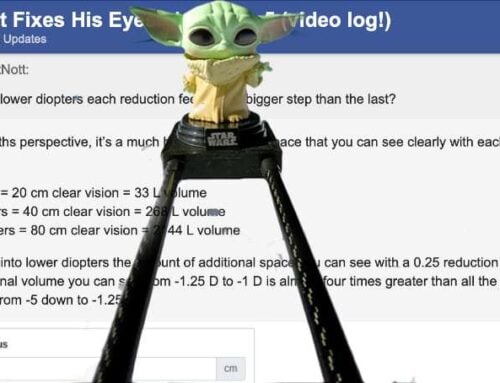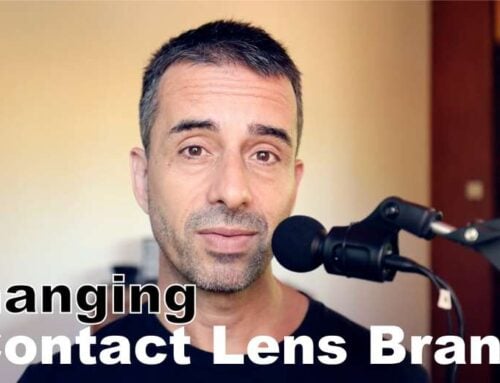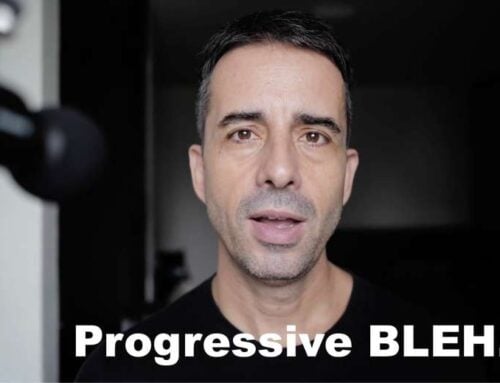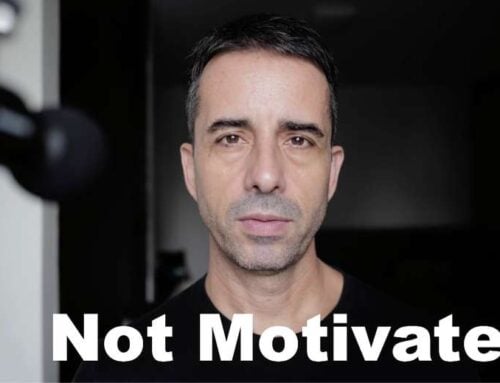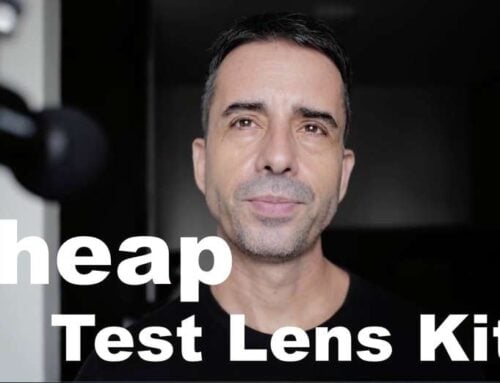I see this question a lot, in various forms. Let’s look at similar prescription related mistakes:
The instinct, of course, is the correct one. A false focal plane, as it is created by glasses, is in concept not good for your eyes. Further, if you wear one, and then you keep needing more, year after year, your logical thinking will tell you that there is something wrong with the treatment.
All that of course, in premise, does make sense. And if you did or are doing any of the above, you are on the right track. Almost. But there is a problem, which does negate what you are trying to accomplish. Let’s look at a scenario:
Imagine, for a moment, a person with a brain chemistry imbalance. It is the sort of thing that is real, tangible, and affects the person’s mental health, and ability to function in the world. This person seeks medical advice from a psychiatrist, and is prescribed medication. The medication helps by balancing the brain chemistry, the person can now function, keep a job, maintain relationships with friends and family.
However, this person realizes that the medication has serious side effects. Lacking emotional depth, physical discomfort.
Eventually the person decides to abandon the medication.
Is that a good idea? The brain chemistry imbalance is real. The medication helped. No medication, along with no fixing the brain chemistry in another way, is just trading one poor situation for another.
Back to your eyes, and glasses: if your eye is working with a focal plane error, glasses correct the error. It is much like the scenario above. You are having an actual problem, which is fixed by the glasses.
Wearing an underprescription, fixes your problem less. It isn’t a benefit.
Not wearing glasses at all, changes nothing about the underlying problem. You traded one risk (increasing prescriptions) for another (falling into the open manhole cover, not being able to see the future love of your life across the street, etc).
Ignoring the problem altogether, also does nothing to improve your eyesight.
And believe me, I get this a lot. The people who end up in my office, they tend to have tried other things before finding my practice. Things, often, that are as imaginative as they are fruitless.
Glasses are a significant impact on what happens with your eyes. There is a reason, in principle at least, that they are meant to be dispensed only as prescribed by a doctor. We shouldn’t really change prescription strength, just based on a hunch, or a vague theory (like, not wanting to get ‘too much’).
Glasses correct a focal plane error. If we don’t want to wear glasses, we have to find out why there is a focal plane error, and how we can correct it otherwise.
If you don’t wear glasses but have significant myopia, please do consider the benefits of seeing clearly. It’s a life much more fun and interesting, if you can see things around you. If you are under correcting, you absolutely want to understand why you are doing it. If you don’t know active focus, an undercorrection accomplishes nothing.
Glasses, in actuality, are your friend. Everyone’s friend. My friend, as well. Our lifestyle is not the way nature intended our eyes to be used. I should not be sitting here, staring at a fixed, close-up distance for several hours. It is not what the eye was designed for. So even if I have 20/12 vision, I wear glasses for up-close use. I wear them only as preventative measure, and not all the time. Without them though, I could not maintain perfect eyesight, while also spending several hours every day, in front of a computer.
Glasses also enable almost all of our rehabilitation work. Without glasses, it would be much harder to cure your myopia. And with glasses, while you are working on getting to 20/20, you can actually enjoy seeing your environment, rather than suffering constant blur.
It is important to embrace the benefit of focal plane correction (glasses). If you spend some time on this blog, the forum, and (optionally) the paid program, the healthy use of prescription lenses will be quite simple, logical, and help you balance your day-to-day eyesight needs, and vision improvement goals.
Enjoy!

